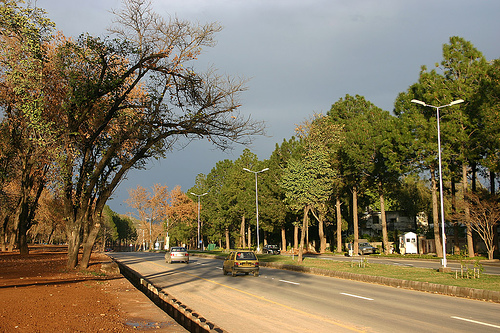A nation with a population of 177 million with an average population density of 222 persons per sq km, higher than many other developing countries, whose 37% people live in urban areas and 63% in rural has a high rate of migration to urban centers which has made the cities dysfunctional, overcrowded and very congested. Rapid urbanization is putting the available insufficient infrastructure under enormous pressure and causing environmental debacles of great magnitude. Serious risks of irreversible damages are present due to air and water pollution, mismanagement of solid waste and destruction of fragile ecosystems.
With an estimated 37 percent of its population living in cities, Pakistan is the highly urbanized country in South Asia. Its cities continue to grow, offering employment opportunities, but rapid urbanization has been accompanied by environmental problems such as pollution, waste management, congestion and the destruction of fragile ecosystems. Urban air pollution remains one of the most significant environmental problems, facing the cities.
Motorcycles and rickshaws, due to their two stroke (2 strokes) engines, are the most inefficient in burning fuel and contribute most to emissions. 2-stroke vehicles are responsible for emission of very fine inhalable particles that settled in lungs and cause respiratory diseases. The 2-stroke vehicles industry is performing fast in Pakistan and has increased by 142.6 percent in 2010-11 when compared with the year 2000-01. Rickshaws have grown by more than 24 percent while motorcycles and scooters have more than doubled since 2000-01.
Supply of drinking water and provision of sanitation are the most important contributing factors for improving the health of the people in any country. Inadequate water supply results in high incidence of water related diseases which in turn increase morbidity and mortality rates and pose major threat to the survival and development of children.
Climate change is one of the most complex challenges of the new century; Pakistan like other developing countries remained extremely vulnerable to the impacts of climate change. The most serious concerns are the threat to water and food security of the country and the vulnerability of its coastal areas. Other climate change related concerns include increased risks and extreme events (floods, droughts and cyclones) and adverse impact of forests, biodiversity human health etc.
These all issues are solely related with the life of citizens of this country but unfortunately from today’s situation our policy makers are not looking like the citizens of this country, they even don’t want to at least to know the situation and its drastic impacts on our future generations.
But history proved it many times before when man acted against nature the nature reacted with double strength. Now we have two ways either to start working for the immediate stop of these key issues or to wait for the wraith of nature (environment) in the form of deaths from diseases, floods, droughts and cyclones but it, s fact that wraith can’t be subdued.




